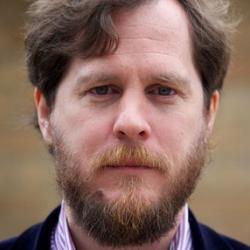Sabbatical and Research Leave 25-26 (Michaelmas, Lent and Easter Terms)
Biography
Christopher Brooke is Professor of Modern European Political Thought and Fellow and Director of Studies in Politics at Homerton College. He holds a PhD from Harvard University and has worked at Oxford (2000-2009), Cambridge (2009-2012), Bristol (2012-2014), and Cambridge again (since 2014).
Research
I am working on three main projects: on European union before the European Union, a history of distributive political thought from 1699 to the present, and a general history of political thought in the period 1794-1848.
Publications
- Thomas Hobbes, Leviathan (London: Penguin, 2017).
- [edited, with Elizabeth Frazer] Ideas of Education: Philosophy and Politics from Plato to Dewey (London: Routledge, 2013).
- Philosophic Pride: Stoicism and Political Thought from Lipsius to Rousseau (Princeton, NJ: Princeton University Press, 2012).
- ‘Nonintrinsic egalitarianism, from Hobbes to Rousseau’, The Journal of Politics, vol. 82, no. 4, October 2020), pp. 1406-1417.
- ‘Robert Malthus, Rousseauist’, The Historical Journal, vol. 63, no. 1 (February 2020), pp. 15-31.
- ‘Wollstonecraft and Rousseau’, for The Wollstonecraftian Mind, Sandrine Bergès, Eileen Hunt Botting, and Alan Coffee, eds. (London: Routledge, 2019), pp. 161-170.
- ‘Arsehole Aristocracy (or: Montesquieu on honour, revisited)’, European Journal of Political Theory, vol. 17, no. 4 (October 2018), pp. 391-410.
- ‘Eighteenth-century Carthage’, in Commerce and Peace in the Enlightenment, Béla Kapossy, Isaac Nakhimovsky, and Richard Whatmore, eds. (Cambridge: Cambridge University Press: 2017), pp. 110-24.
- ‘“The porch to a collectivism as absolute as the mind of man has ever conceived”: Rousseau scholarship in Britain, from the Great War to the Cold War’, in Avi Lifschitz, ed., Engaging with Rousseau (Cambridge: Cambridge University Press, 2016), pp. 136-51.
- ‘Isaiah Berlin and the origins of the “totalitarian” Rousseau’, in Ritchie Robertson and Laurence Brockliss, eds., Isaiah Berlin and the Enlightenment (Oxford: Oxford University Press, 2016), pp. 89-98.
- ‘Rawls on Rousseau and the general will’, in David Lay Williams and James Farr, eds. The General Will: the Evolution of a Concept, (Cambridge: Cambridge University Press, 2015), pp. 429-46.
- ‘Introduction’, to Robert Wokler, Rousseau, the Age of Enlightenment and their Legacies, Bryan Garsten, ed. (Princeton, NJ: Princeton University Press, 2012), pp. ix–xiv.
- [with Josephine Quinn]: ‘“Affection in education”: Edward Carpenter, John Addington Symonds and the politics of Greek love’, Oxford Review of Education, vol. 37, no. 5 (2011), pp. 683–98.
- ‘Rousseau’s Second Discourse, between Epicureanism and Stoicism’, in Rousseau and Freedom, Stanley Hoffmann and Christie MacDonald, eds. (Cambridge: Cambridge University Press, 2010), pp. 44–57.
- ‘“Locke en particulier les a traitées exactement dans les mêmes principes que moi”: revisiting the relationship between Locke and Rousseau’, in Locke’s political liberty: readings and misreadings, Christophe Miqueu and Mason Chamie, eds (Oxford: Voltaire Foundation, SVEC, 2009:04), pp. 69–82.
- ‘In Roman costume and with Roman phrases: Skinner, Pettit and Hobbes on republican liberty’, Hobbes Studies, vol. 22 (2009), pp. 178–84.
- ‘Grotius, Stoicism and Oikeiosis’, in Grotiana, vol. 29 (2008), pp. 25–50.
- ‘Aux limites de la volonté générale: silence, exil, ruse et désobéissance dans la pensée politique de Rousseau’, Les études philosophiques, 2007–4 (octobre), pp. 425–44.
- ‘Light from the Fens?’, New Left Review, 2.44 (March–April 2007), pp. 151–60.
- ‘How the Stoics became atheists’, The Historical Journal, vol. 49, no. 2 (June 2006), pp. 387–402.
- ‘Rousseau’s political philosophy: Stoic and Augustinian origins’ in Patrick Riley, ed., The Cambridge Companion to Rousseau (Cambridge University Press, 2001), pp. 94–123.
Teaching and Supervisions
The History of the History of Political Thought (PhD class, since 2014)
The Political Thought of Michel Foucault (MPhil class, since 2021)
The History of Political Thought (Part II, all periods)
The Modern State and its Alternatives (Part I)

